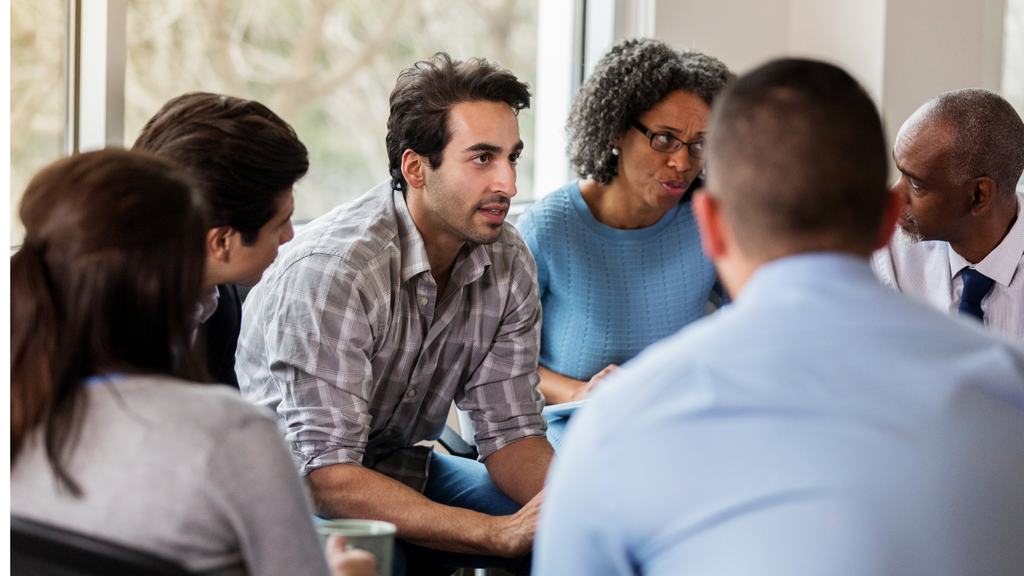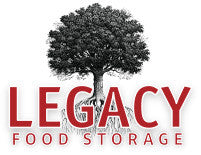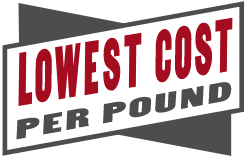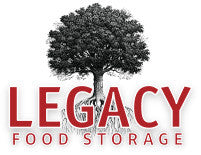
The Overlooked Emergency Planning Strategy That Changes Everything
The first week wasn't so bad. Karen had always been so proud of herself for making sure she had extra supplies to cover basic needs in case of an emergency. Things like extra food, water storage, a water filter, first aid, and other basic supplies. But as the extended power outage stretched on, her carefully managed supplies began to dwindle, now she wondered if she would have enough.
The neighborhood, typically bustling with casual hellos, kids playing in the street, and weekend barbecues, now felt like a collection of fortified islands. No one left their home as everything was closed. Worse, the deafening silence each night made the feelings of vulnerability grow and was more terrifying than any shortage. Daylight was always welcomed.
When her water filter broke, she realized she had no one to ask for help and no backup plan. The skill she needed—basic plumbing repair—was completely outside her expertise. Her carefully stored food meant little if she couldn't solve basic water supply issue. Worry grew as her as she watched her mother's medication supplies dwindle, knowing the local pharmacy had not reopened. The gas in her car was almost to empty leaving her with dwindling ability to charge her phone or drive anywhere. She quickly realized her emergency planning had some serious gaps.
The Power of Groups During Emergencies
In a world of increasing uncertainty, mutual assistance groups (MAGs) have evolved from a prepper strategy to being a very practical approach for family safety. Reconfirming the old adage, there is strength in numbers.
What is a Mutual Assistance Group?
A mutual assistance group is a dedicated group of people who come together to support each other during emergencies, natural disasters, or prolonged disruptions. Unlike a casual network of friends, these groups are intentionally organized, with clear goals, leveraging unique skills, shared resources, and defined roles.
Why form a Mutual Assistance Group?
No single person can be an expert in everything. Effective MAGs bring together professionals with complementary abilities:
- Multiple Skills-
- Medical experts (first responders, nurses, healthcare professionals)
- Technical specialists (IT, communications, repair technicians)
- Security professionals
- Agricultural and food production experts
- Construction, plumbing, electricians and other trades
- Logistics and resource management specialists
- Childcare, cooking, teaching, or organization
- Resource Advantages
- Shared equipment and supplies
- Combined financial resources for group purchases
- More efficient storage and maintenance of critical supplies
- Access to more specialized equipment
- Enhanced Security
- Multiple people for watch and patrol rotations
- Shared defensive capabilities
- Improved situational awareness
- Psychological deterrent to potential threats
- Emotional & Psychological Support
- Emotional resilience
- Shared problem-solving
- Reduced isolation and sense of community
- Collective motivation during challenging times
The generator sputtered to life, a welcome hum of relief and a cheer from the group. Jake looked around at the five families gathered in his backyard—people he'd barely known six months ago. When the grid went down 3 months prior in the regional power outage, their individual preparedness had quickly revealed both strengths and gaps. Though some had initially been hesitant to reach out, necessity overcame uncertainty.
It all started with a conversation at a local event, they soon realized, they could pool together a group where each family had something to offer. Tom, who worked as an IT manager, had communication equipment. Lisa, a former Army medic, managed their first aid supplies. The Rodriguez family brought plumbing and repair skills, while the Hendersons contributed mechanical skills and tools.
This time, the results were game changing.
Everyone has something to contribute, whether it's specialized knowledge, practical skills, or simply the willingness to learn and help others. Finding a group with varied skill sets doesn't just prepare you for challenges – it transforms a lack of knowledge into a collective strength. In an increasingly unpredictable world, mutual assistance groups prove that the best emergency plan isn't just about storing supplies or mastering survival skills. It's about building a team that can adapt, support, and thrive when faced with adversity.
Amy Hanus brings 20 years of preparedness industry expertise alongside 4 decades of client focus excellence. Her strategic and tactical marketing insights help deliver exceptional value and raise industry standards of quality and care.
Tags
- All
- 25 year food
- 25 year shelf life food
- 72 hour kit
- Best food storage types
- Best long-term food storage
- Blizzard preparedness
- Budgeting
- canning
- Certified GMO-free Emergency foods
- Certified GMO-free foods
- Coffee
- Comparison of emergency food methods
- Composting tips
- Dangers of genetically modified foods
- dehydrated food
- Edible Wild Plants
- emergcy preparedness
- Emergency Cooking
- Emergency Food
- Emergency food Christmas gifts
- emergency food storage
- Emergency Food Supply
- Emergency food supply recommendations
- Emergency Planning
- Emergency Preparedness
- Emergency preparedness advice
- emergency preparednesss
- Emergency Supplies
- Emergency supplies checklist
- Emergency Survival
- emergency survival gear
- Emergency survival kit checklist
- Emergency Survival skills
- exercise
- Family emergency preparedness
- Family emergency preparedness plan
- Family Preparedness
- Food Storage
- Food storage 25 year shelf life
- Food storage amounts
- Food storage Christmas
- Food storage containers long term
- Food Storage Secrets
- Food storage serving size
- Food storage types compared
- freeze dried food
- Freeze dried food storage
- freeze dried meats
- Freeze-dried emergency food storage
- Fruit Trees
- Gardening
- Getting Started
- Gluten-free food Storage
- Gourmet emergency food
- Healthy food storage
- How much emergency food to store
- Improved emergency preparedness
- Jared Markin
- Jared Matkin
- Legacy Premium
- Lessons learned from Hurricane Sandy
- Lessons learned from natural disasters
- long-term food storage
- Long-term Food Storage Guidelines
- Long-term Food Storage tips
- Long-term water storage
- Mental Emergency Preparedness
- Mental toughness
- Money-saving tips
- Natural disaster planning
- Natural Disasters
- Perfect Christmas gifts
- Pet Emergency preparedness checklist
- Pet Emergency preparedness kit
- Pet Emergency Survival tips
- Pets and Emergency Preparedness
- Plant Foraging
- portable solar panels
- portable solar power
- portable water filters
- protein drinks
- Risk of genetic modification
- Seed saving and storage
- Seed saving guide
- Self-reliance
- Self-reliant practices
- Shelf Life
- Solar Cooking
- Solar Ovens
- Special Dietary needs
- Stranded in a car in a blizzard
- Survival food
- Survival Gear
- survival kit
- Survival kits
- Survival Ovens
- Survival Skills
- survivalist gear
- suvival kit
- Tree Pruning tips
- Tree Trimming basics
- unique ideas
- water bottle with filter
- water filter
- water filter straw
- water filters
- Water Filtration
- water pitcher with filter
- water pitchers with filters
- Water purification
- Wild Food Foraging
- Winter composting
- Winter driving
- Winter preparedness tips
- Winter storm preparedness tips
- Winter Survival







